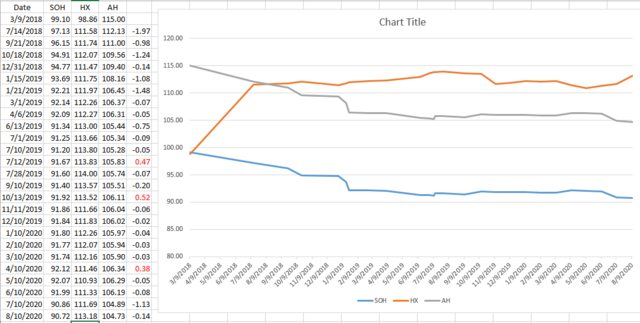danrjones
Well-known member
DaveinOlyWA said:danrjones said:LeftieBiker said:I leased mine about 3 days before Dan, and my odometer reads 3,503, IIRC.
Death by a thousand paper cuts?
My in town isn't large enough to exceed about 20 miles a day. And my actual commute is about 2.5 each way. Even if the battery heavily degrades in the heat the car will do fine in town for years. Mileage might be irrelevant to degradation ...
What is your SOC targets for charge/discharge? What "seems" to be common are LEAFs driven heavily that degrade slowly while other LEAFs driven very lightly degrade faster. On the latter, there was a lot of evidence suggesting the lack of custom charge settings being the a factor with more than a handful simply "plugging it in and forgetting it"
My 30 kwh LEAF with supposedly one of the worst batteries went 30,000 miles in 14 months and 2 days died with 100% SOH and ahr of 82.05 of max 82.34 or 99.6% of new capacity. Since I rarely charged to full, I don't know how close I was to the maximum GID count of 363 but guessing I wasn't too far off. I did 116 miles on a single charge in Jan 2 days before the accident
Well if only Nissan allowed a set point for SOC, right?
But most of the time I have my timer set to well after I leave for work, so that when I unplug I'm around 70-75%. It is never the same each time for some odd reason but close enough. And I'll recharge when I get down around 35%. Sometimes 40% if a weekend is coming so I don't have to charge on the weekend, because inevitably I'll plugin and forget about it Saturday or Sunday morning and it would charge to full.
I'm still a believer that part of my problem is the heat here. I don't buy the idea heat has no impact. For one thing, even the BMS treats hot weather differently. During the winter that daily adjustment of 0.01 occurs only once a week, or even less. Right now I'm loosing 0.01 every day, yesterday morning it dropped 0.02. I think we all agree the BMS appears artificial. But even if the computer is artificially lowering my SOH faster during hot weather, then it means Nissan engineers programmed it to take away more during hot weather. Why would they do that? The most obvious reason is because hot weather degrades the battery faster. You are welcome to disagree but the fact remains the BMS takes away more during hot weather. That's a fact for my 2018. Now hopefully that will stop... but it hasn't yet. Last three month adjustment was basically nil so I'm curious to see what happens after the summer.

